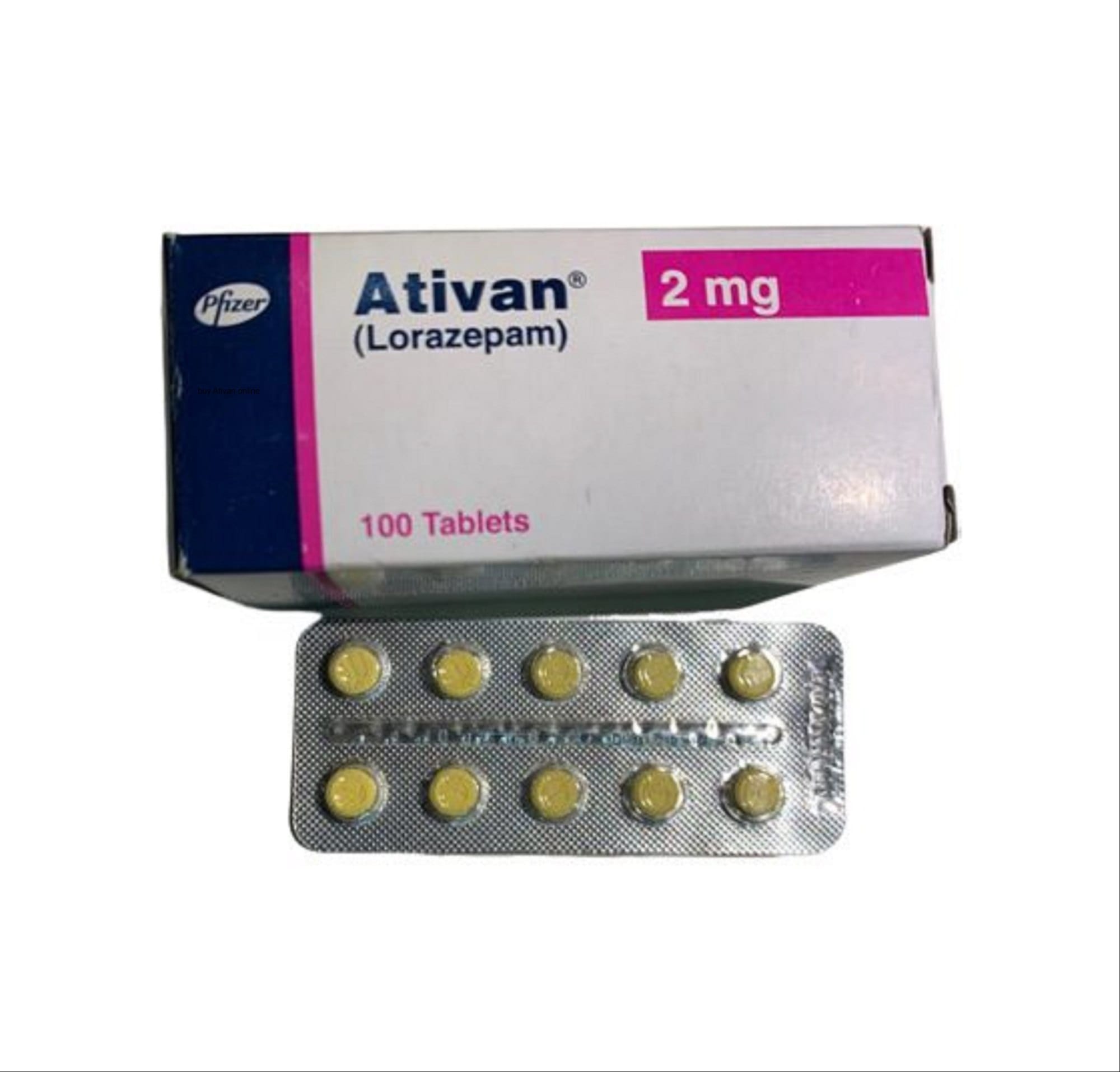Buy Ativan
Ativan, generically known as lorazepam, is a prescription medication that belongs to the benzodiazepine class. It is primarily used to treat anxiety disorders, insomnia, and certain seizure disorders. Ativan 2 mg is a higher dose formulation, used when a stronger effect is needed for managing severe anxiety or other conditions as determined by a healthcare provider.
Active Ingredient
The active ingredient in Ativan is lorazepam, which acts on the central nervous system to produce a calming effect.
Mechanism of Action
Lorazepam, the active ingredient in Ativan, works by enhancing the effects of a neurotransmitter called gamma-aminobutyric acid (GABA). GABA is an inhibitory neurotransmitter that helps to reduce excessive brain activity. By increasing GABAergic activity, lorazepam helps to:
- Reduce Anxiety: Provides a calming effect and alleviates symptoms of anxiety.
- Induce Sleep: Aids in the management of insomnia by promoting sleep onset and maintenance.
- Control Seizures: Suppresses abnormal electrical activity in the brain, helping to manage seizure disorders.
Buy Ativan
Ativan 2 is indicated for:
- Anxiety Disorders: Management of severe anxiety symptoms that interfere with daily functioning.
- Insomnia: Short-term management of sleep disturbances when non-pharmacological approaches are ineffective.
- Seizure Disorders: Adjunctive treatment for certain types of seizures, including status epilepticus.
Dosage and Administration
- Anxiety Disorders: The typical starting dose is 2 to 3 mg per day, divided into two or three doses. The dosage can be adjusted based on the patient’s response and tolerability, with a maximum recommended dose of 10 mg per day in severe cases.
- Insomnia: For short-term treatment of insomnia, 2 to 4 mg at bedtime is generally prescribed.
- Seizures: Dosing for seizure control varies depending on the specific condition and is typically administered in a healthcare setting for acute seizures.
Ativan tablets should be taken orally with or without food. The 2 mg dose can be adjusted based on individual needs and should be taken exactly as prescribed.
Side Effects
Common side effects include:
- Central Nervous System: Drowsiness, dizziness, tiredness, and impaired coordination.
- Gastrointestinal: Nausea, vomiting, and changes in appetite.
- Musculoskeletal: Muscle weakness.
Serious side effects may include:
- Respiratory Depression: Slow or difficult breathing, particularly when used in combination with other central nervous system depressants.
- Severe Allergic Reactions: Symptoms such as rash, itching, swelling, or severe dizziness.
- Dependence and Withdrawal: Long-term use can lead to physical dependence and withdrawal symptoms if abruptly discontinued.
- Ativan (Lorazepam) 2mg is a medication belonging to the benzodiazepine class, primarily prescribed for the short-term management of anxiety, insomnia, or seizure disorders. It works by enhancing the effects of a neurotransmitter called GABA in the brain, producing a calming effect on the central nervous system.
Uses:
- Anxiety: Reduces anxiety symptoms.
- Insomnia: Helps with short-term sleep issues.
- Seizures: Sometimes used in the treatment of seizure conditions.
Common Side Effects:
- Drowsiness
- Dizziness
- Memory impairment
- Weakness
Important Considerations:
- Risk of dependence: Can be habit-forming, especially when used for long periods or at high doses.
- Alcohol interactions: Combining with alcohol can be dangerous, leading to excessive sedation or respiratory depression.
- Caution in elderly: More sensitive to side effects like sedation and dizziness.
Ativan 2mg should be used as prescribed, typically for short durations, to avoid the risk of tolerance, dependence, or misuse.
Precautions and Warnings
- Dependence and Addiction: Ativan has the potential for abuse, dependence, and addiction, especially with long-term use or in individuals with a history of substance abuse. It should be used at the lowest effective dose for the shortest duration necessary.
- CNS Depression: Caution is required when used in combination with other CNS depressants, including alcohol and opioids, as it can enhance sedative effects and increase the risk of severe drowsiness and respiratory depression.
- Hepatic and Renal Impairment: Dose adjustments may be needed for patients with liver or kidney dysfunction due to altered drug metabolism and excretion.
- Pregnancy and Lactation: Ativan should be used during pregnancy only if clearly needed. It is classified as Category D, meaning there is positive evidence of risk to the fetus. Lorazepam can also pass into breast milk, so nursing mothers should consult their healthcare provider.
| Quantity | 90 Pills, 180 Pills |
|---|---|
| Delivery Time | 4 to 5 Days |



Lucky Man –
I had a great experience with Pick Medication. The website was easy to use, and my order arrived on time, well-packaged. The prices are competitive, and customer service was quick and helpful. Highly recommend for fast and reliable medication delivery!
Laura Melvin –
I’ve had a great experience with this company. The website is user-friendly, my orders always arrive on time, and the prices are competitive. It’s a hassle-free way to get the medications I need. Highly recommend!